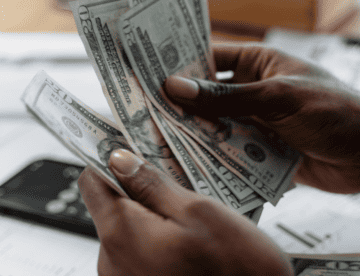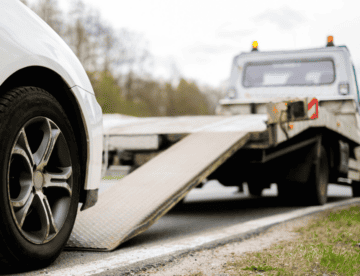
If you’ve made the decision that bankruptcy is the right choice for you, you may find yourself asking, “What happens when you file for bankruptcy?” The process of filing is complex, and it requires a great deal of documentation, strong organization skills, and attention to detail. Without a good sense of what to expect, it can also feel overwhelming. Below we’ve provided a general overview to help you better understand what happens when you file for bankruptcy.
What Happens When You File for Bankruptcy – Before You File
Before you file for bankruptcy, you’ll need to collect all of your financial information, including all monthly payments and outstanding debt. An experienced bankruptcy attorney can help guide you through this process to make sure you don’t leave out any important information because even a small mistake can result in the dismissal of your case. An attorney can also help guide you through the “means test” to determine whether you qualify for a Chapter 7 bankruptcy. Once you and your attorney have identified the best bankruptcy option for your needs and qualifications, you will need to complete and submit all forms and schedules and provide a list of creditors. It’s important to list all of your financial information and creditors. Omitting any details can result in delays, dismissals, and, in some cases, charges of perjury.
What Happens When You File for Bankruptcy – When You File
Filing Process
Much of the work of bankruptcy happens before you file. Once you’ve collected all of the information and completed your forms, your attorney will file your claim in bankruptcy court. At this time, you’ll have to pay your filing fee. You’ll also need to complete a credit counseling course. Once your case is filed, you’ll then receive a case number from the court as your bankruptcy estate is created. (A bankruptcy estate is a description of your assets.) Any payments to creditors will come from this estate.
Automatic Stay
When you file for bankruptcy, an automatic stay order immediately goes into effect. An automatic stay prevents creditors from taking collection action against you. Typically, the automatic stay remains in place for the duration of your case. While an automatic stay does not include all collection attempts (like nondischargeable tax debt), it does provide immediate relief from wage garnishments, overdue payments on unsecured debt, any pending civil litigations against your debt, repossessions, and foreclosures.
What Happens When You File for Bankruptcy – After You File
Once you’ve completed the filing process, you relinquish your estate and debts to bankruptcy court. A trustee is then assigned to your case. During this process, you will need to keep track of dates, meetings, and hearings as your trustee works to satisfy your creditors. You’ll also need to provide further documentation of your finances, including pay stubs and tax returns. An experienced bankruptcy attorney can provide peace of mind throughout this lengthy process as they manage your hearings and help you with forms and documentation.
Contact the Experienced Bankruptcy Attorneys at Burrow & Associates
Filing for bankruptcy doesn’t have to be an overwhelming process. If you’ve made the decision to file and you’re ready to take the next step, please reach out to the bankruptcy team at Burrow & Associates at (678) 323-2394. We would be happy to help.









